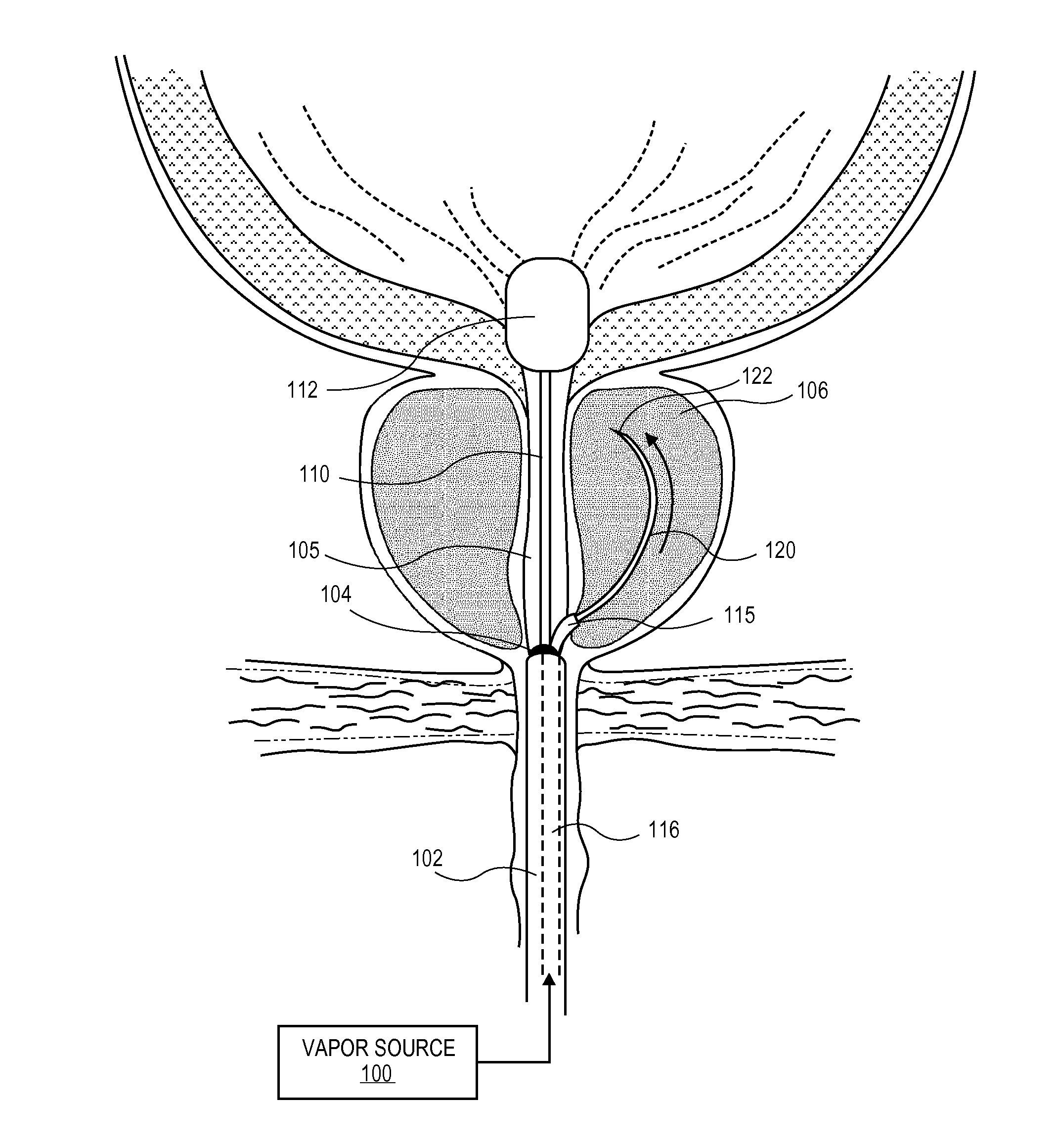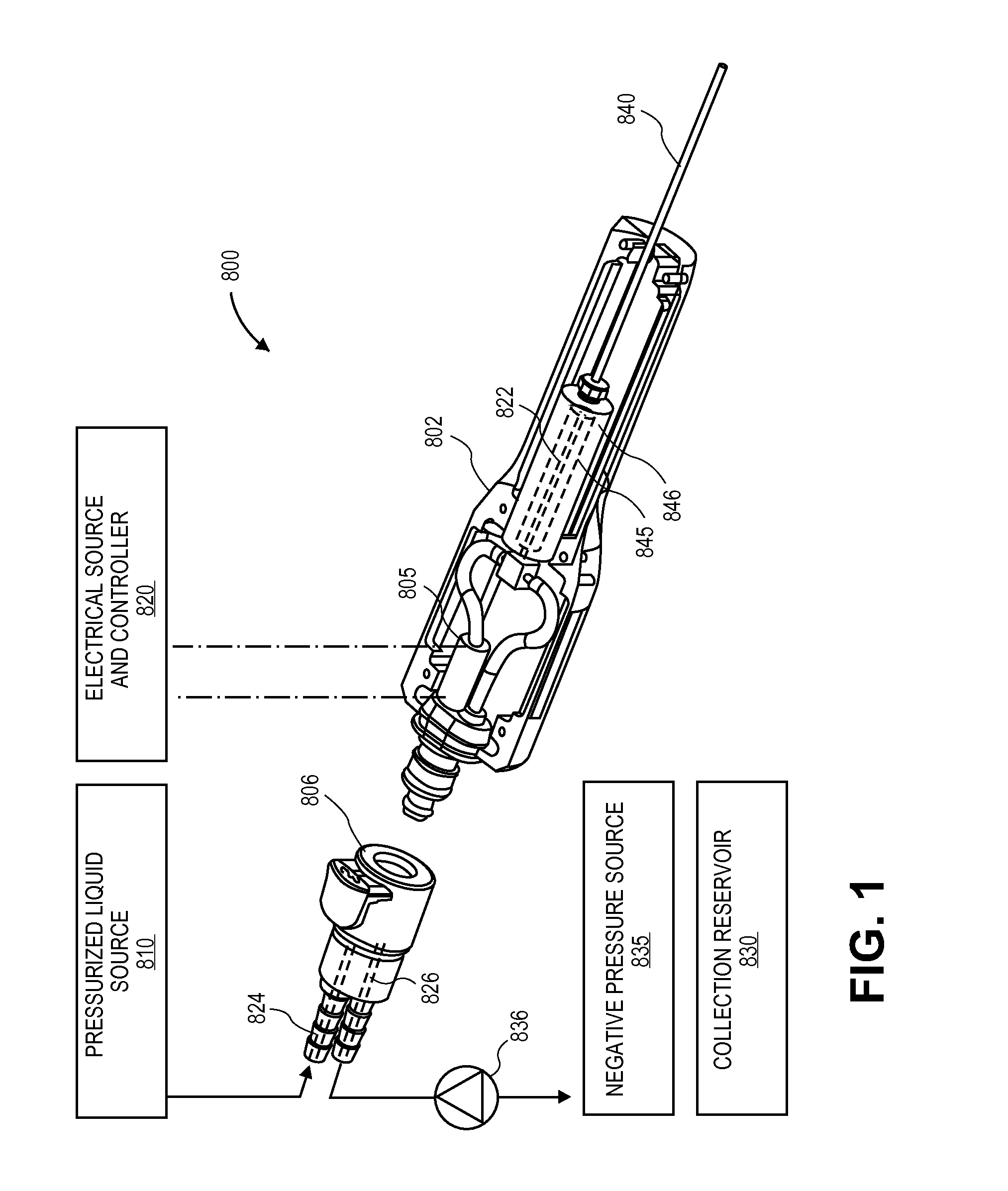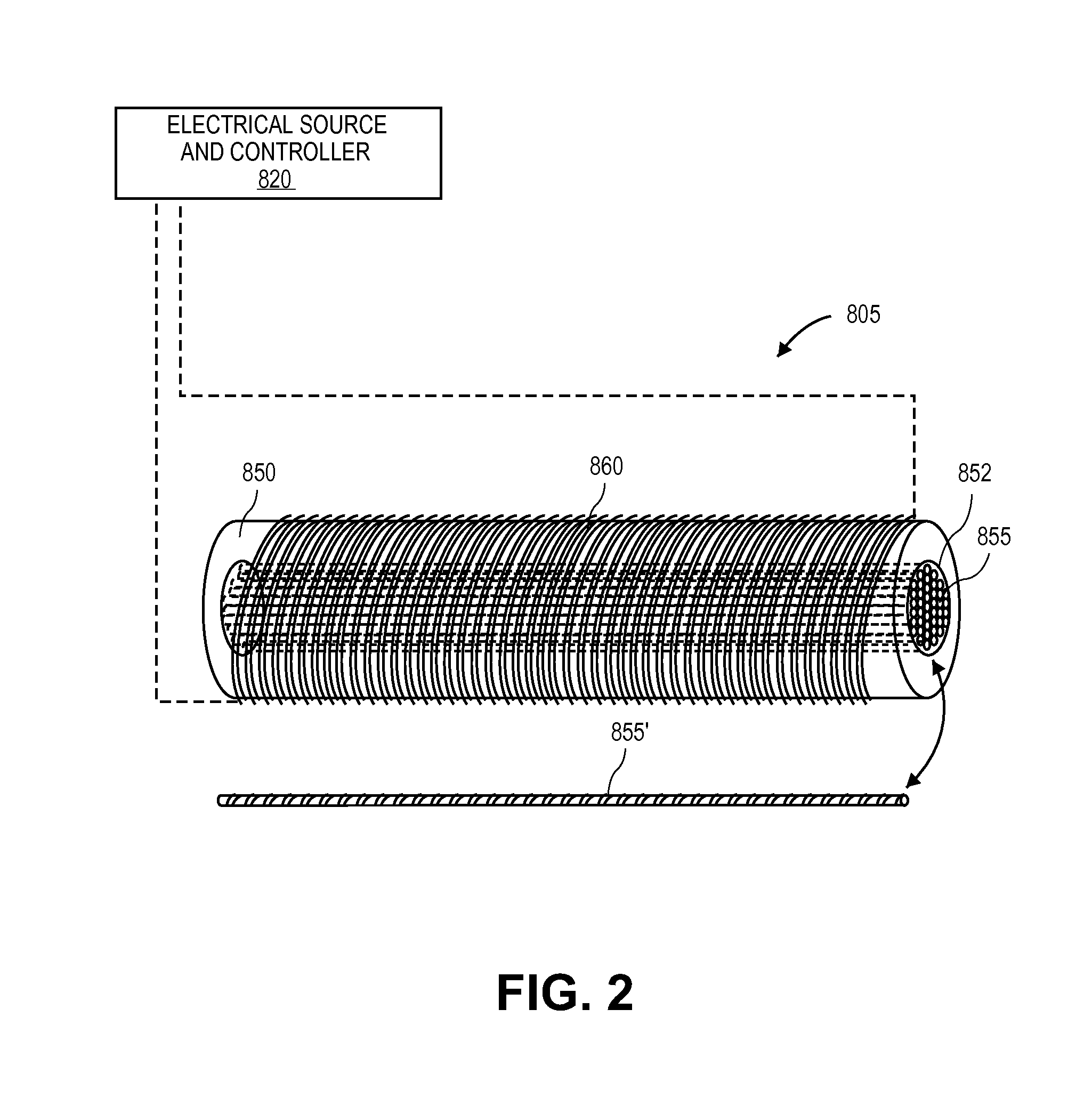Systems and methods for treatment of prostatic tissue
a prostatic tissue and system technology, applied in the field of minimally invasive treatment of prostate tissue, can solve the problems of nocturia and discomfort, decreased urinary flow, cell disruption and cell death,
- Summary
- Abstract
- Description
- Claims
- Application Information
AI Technical Summary
Benefits of technology
Problems solved by technology
Method used
Image
Examples
Embodiment Construction
[0027]A vapor energy generation system is provided that can be configured for introduction into a patient's urethra or prostate, or can be configured to access prostatic tissue trans-rectally or endoscopically. The system is configured to deliver a heated condensable vapor, for example water vapor, to tissue as described in the following co-pending U.S. patent applications: U.S. patent application Ser. No. 10 / 681,625, filed Oct. 7, 2003, titled “Medical Instruments and Techniques for Thermally-Mediated Therapies”; Ser. No. 11 / 158,930 filed Jun. 22, 2005, titled “Medical Instruments and Techniques for Treating Pulmonary Disorders”; Ser. No. 11 / 244,329, filed Oct. 5, 2005, titled “Medical Instrument and Method of Use”; and Ser. No. 11 / 329,381, filed Jan. 10, 2006, titled “Medical Instrument and Method of Use”.
[0028]The generation and delivery of a collapsible, high energy vapor for various therapeutic procedures is further disclosed in systems with ‘remote” vapor generation systems or...
PUM
 Login to View More
Login to View More Abstract
Description
Claims
Application Information
 Login to View More
Login to View More - R&D
- Intellectual Property
- Life Sciences
- Materials
- Tech Scout
- Unparalleled Data Quality
- Higher Quality Content
- 60% Fewer Hallucinations
Browse by: Latest US Patents, China's latest patents, Technical Efficacy Thesaurus, Application Domain, Technology Topic, Popular Technical Reports.
© 2025 PatSnap. All rights reserved.Legal|Privacy policy|Modern Slavery Act Transparency Statement|Sitemap|About US| Contact US: help@patsnap.com



